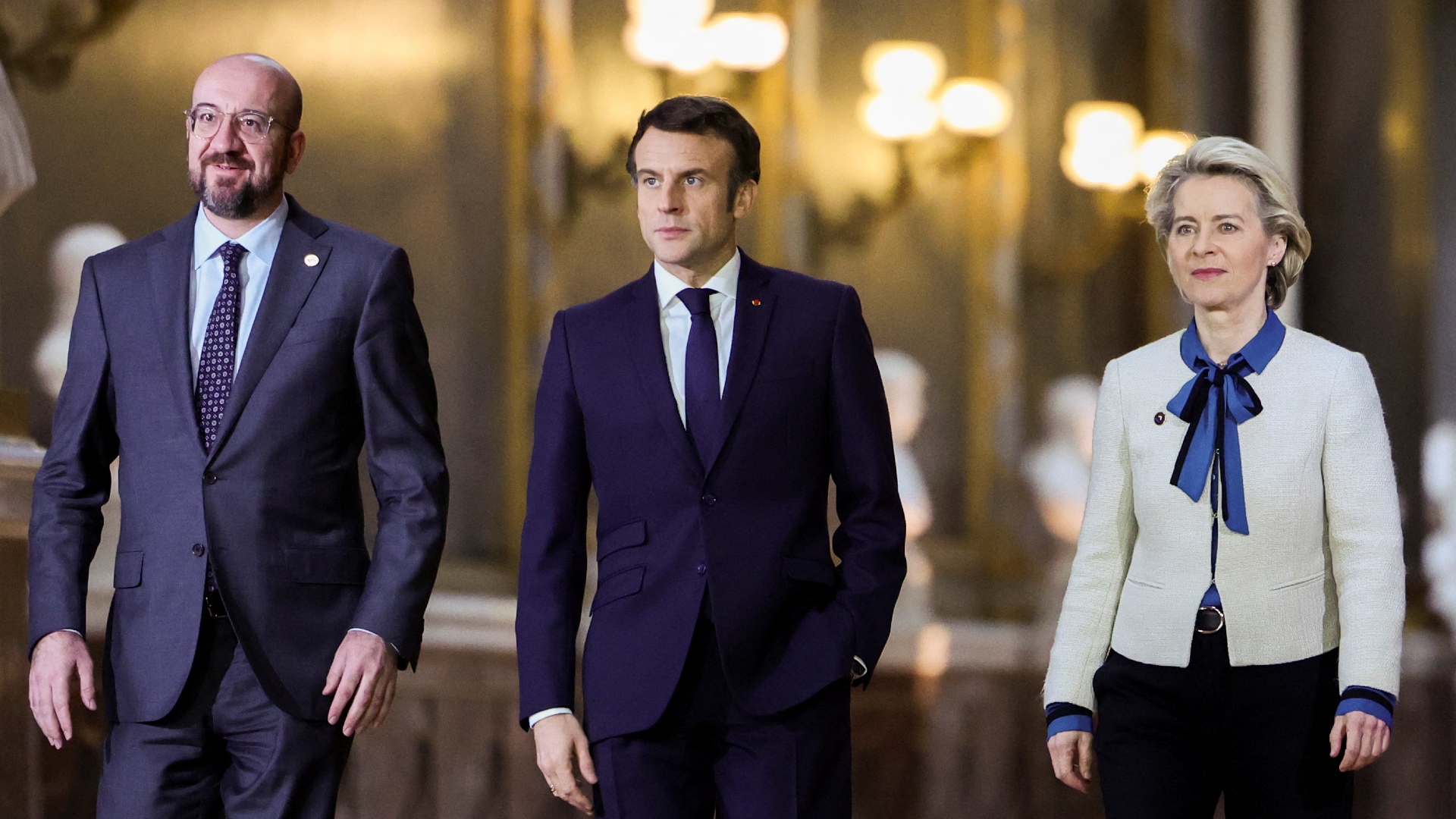
Charles Michel, Emmanuel Macron and Ursula von der Leyen arrive for a news conference after an informal summit of EU leaders at the Palace of Versailles.(Photo:Reuters)
The European Union will suspend Moscow's privileged trade and economic treatment, crack down on its use of crypto-assets and ban exports to Russia of EU luxury goods and imports of iron and steel goods, the head of the European Commission said on Friday.
The new measures amount to a fourth set of sanctions against Russia over its invasion of Ukraine, coordinated with the United States and other G7 allies.
Ursula von der Leyen said the fourth package of measures would "further isolate Russia and drain the resources it uses to finance this barbaric war."
The announcement came after the European Union leaders' meeting at Versailles outside Paris where they refused Ukraine's appeal for rapid accession to the bloc.
You're one of the "European family" and there is a "European path", EU leaders told Ukraine in a statement which came after intensive negotiations on Ukraine's bid to become a member of the EU. But there was no mention of the more ambitious 'European integration'.
Division in the bloc has appeared since Ukraine officially signed an EU membership application on February 28. Some countries appear to favor a faster track for Ukraine, others, though, are opposed.
Joining the EU is a process that usually takes years and requires meeting strict criteria for economic stability to rooting out corruption to respecting liberal human rights.
The statement talked of strengthening the bond with Ukraine and deepening the partnership but that was all.
Also announced at Versailles was a change of the deadline by which Europe hopes to rid itself of dependence on Russian fossil fuels. 2027 is now the aim, brought forward from 2030.
German Chancellor Olaf Scholz said the leaders had also agreed that defense spending needed to increase. "We need to do more together to ensure the security of Europe, including all of us spending more on defense than we have in the past," he said.
The European Commission also aims to double the EU's military aid to Ukraine and has proposed earmarking another $550 million for this purpose.
In the longer term, greater economic self-reliance was stressed as an EU aim. Semi-conductors, pharmaceuticals and plant-based proteins are three of the areas in which the EU seeks to reduce Europe's dependence on other countries.
The COVID-19 pandemic showed that a breakdown of global supply chains could leave the EU without access to crucial goods.


